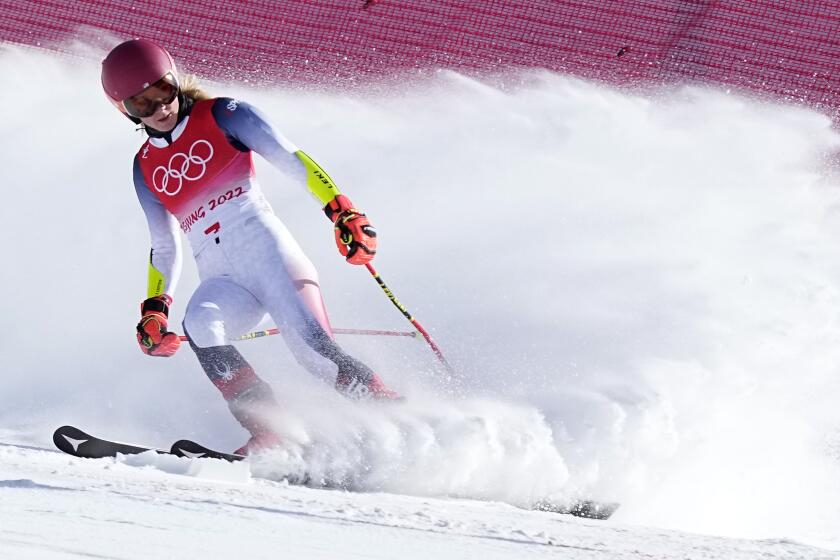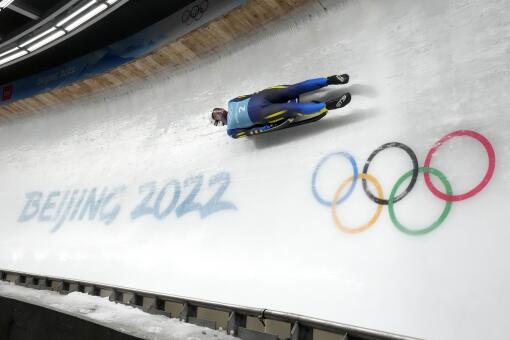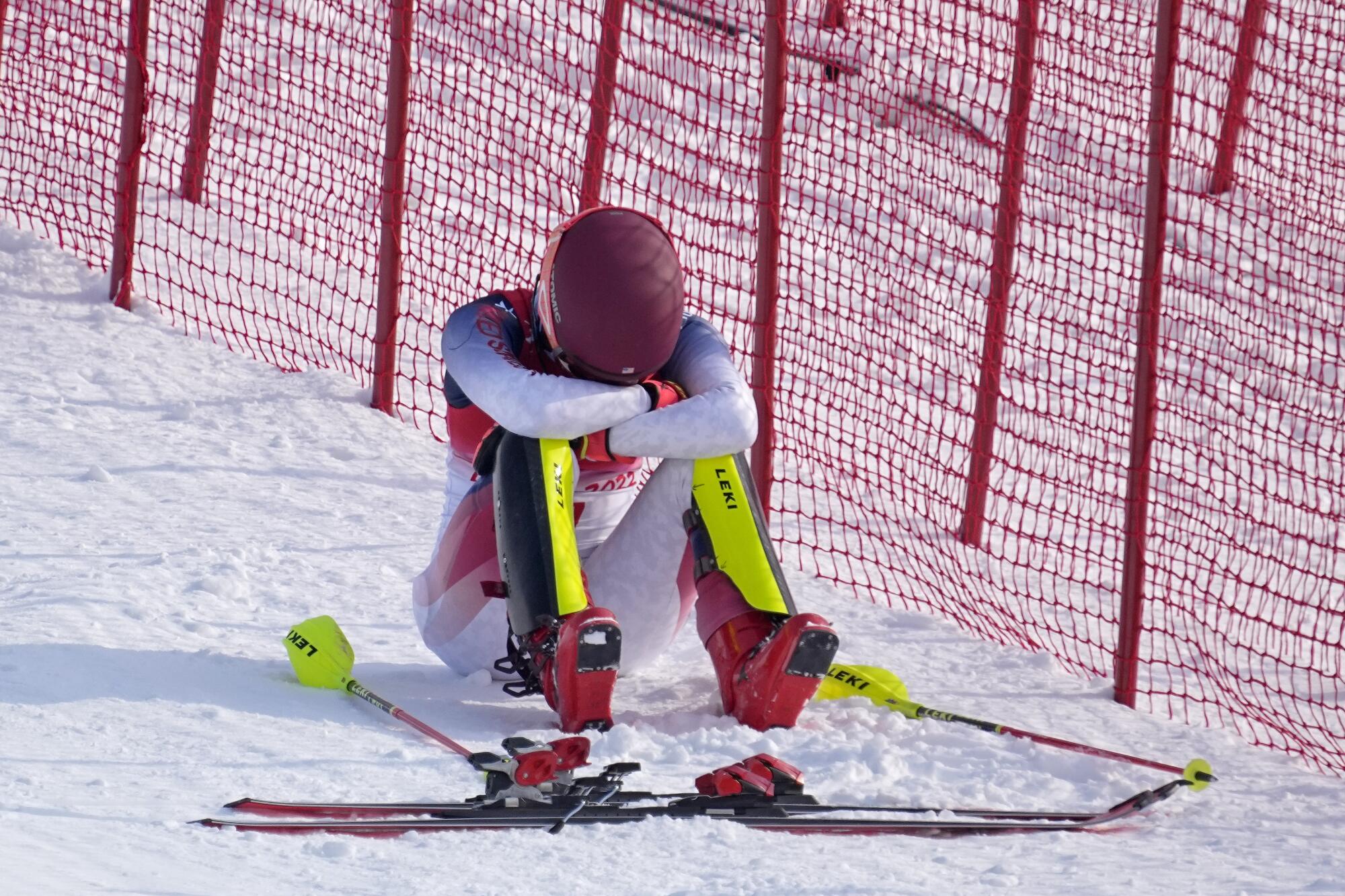
- Share via
BEIJING — The world’s most famous skier had kicked off her skis and dropped her poles. Sitting alone in the snow, she buried her head in her hands.
Other racers zipped past as the women’s slalom event at the Beijing Olympics continued. But Mikaela Shiffrin, who had skidded out of control and missed a gate near the top of the course, did not move. She remained off to the side for 20 minutes.
“There’s a lot of disappointment over the last week,” she said. “There’s a lot of emotions.”
In what will be an enduring if wrenching moment from these Games, her anguish over failing to finish, much less medal, in the second consecutive event in a little over 48 hours highlighted the unrelenting pressure athletes face at a global competition that comes around once every four years.
For some, the Games have become a suffocating crucible that drains much of the joy from the sport they love.
In two years, Shiffrin has experienced the sudden death of her father, a back injury and a positive test for the coronavirus.
Even before arriving in Beijing, the 26-year-old Shiffrin acknowledged the Olympics are often “very uncomfortable the entire time” because athletes “literally feel the expectations from the whole world around you.”
At the figure skating venue, an hour or so to the southeast, California-born Beverly Zhu — competing for China — endured similar heartbreak after falling twice during the women’s team competition. Jamie Anderson, the two-time slopestyle gold medalist, posted a raw message on Instagram after finishing an unexpected ninth.
“At the end of the day I just straight up couldn’t handle the pressure,” she wrote, “had an emotional breakdown the night before finals and my mental health and clarity just hasn’t been on par.”
Even Chloe Kim, who became the first woman to win consecutive halfpipe golds, acknowledged her mental health struggles, telling reporters: “It’s unfair to be expected to be perfect.”
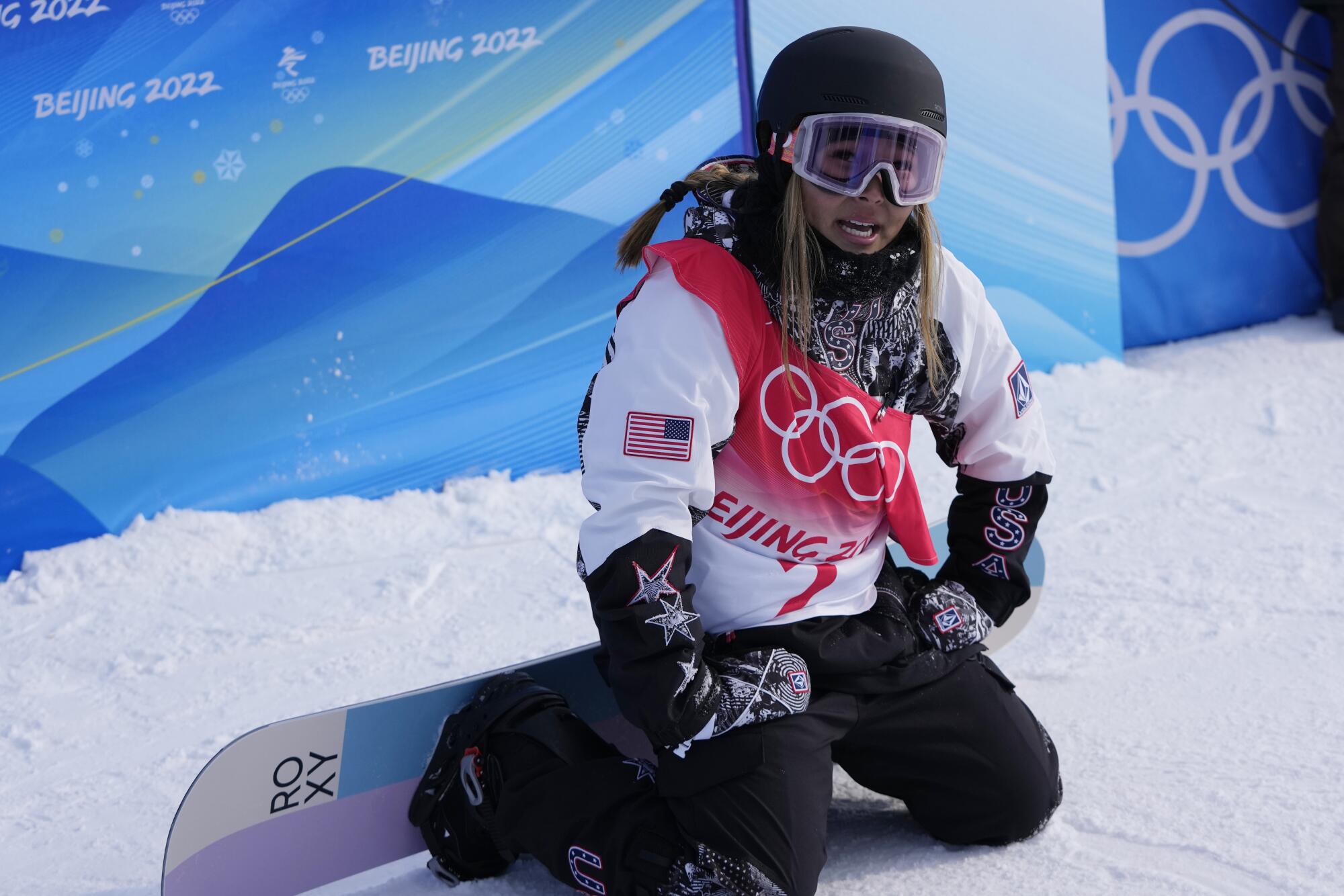
Watching Olympians land a double cork 1620 jump, rocket down the side of a mountain at 90 mph or navigate 16 curves headfirst on a skeleton sled can obscure the reality that they can have ordinary struggles despite their extraordinary ability.
“Pressure can be an asset to people at times, bringing out their best,” said Edward Hirt, a professor of brain sciences and psychology at Indiana University. “Those moments are the ones that we think separate the greats from the rest of the pack. But we also know that those pressures can be debilitating and make you choke. I suspect the pressure mounts as people have been successful in the past.”
The Olympics are a unique stage in that athletes can feel the additional burden of representing their country while receiving more attention, if not scrutiny, than at any other time in their careers. They are hyped relentlessly in this made-for-television spectacle, and sometimes castigated when they do not perform as predicted.
It’s unfair to be expected to be perfect.
— U.S. snowboarder Chloe Kim
These challenges are heightened in a time of pandemic, when athletes are kept in a bubble, separated from the support of family or friends. They must take daily coronavirus tests amid the lingering worry that a positive result — even a false positive — can knock them out of competition.
“Uncertainty creates a lot of pressure,” said Sian Beilock, a cognitive scientist who is president of Barnard College and author of the book “Choke,” which explores performing under pressure. “We, as normal people do the ‘what ifs,’ Olympians do that too.”
Lindsey Jacobellis made a late mistake that cost her a gold medal during the snowboardcross race at the 2006 Torino Games that haunted her for years. She won the event Wednesday at age 36 to become the oldest U.S. woman to medal at the Winter Olympics.
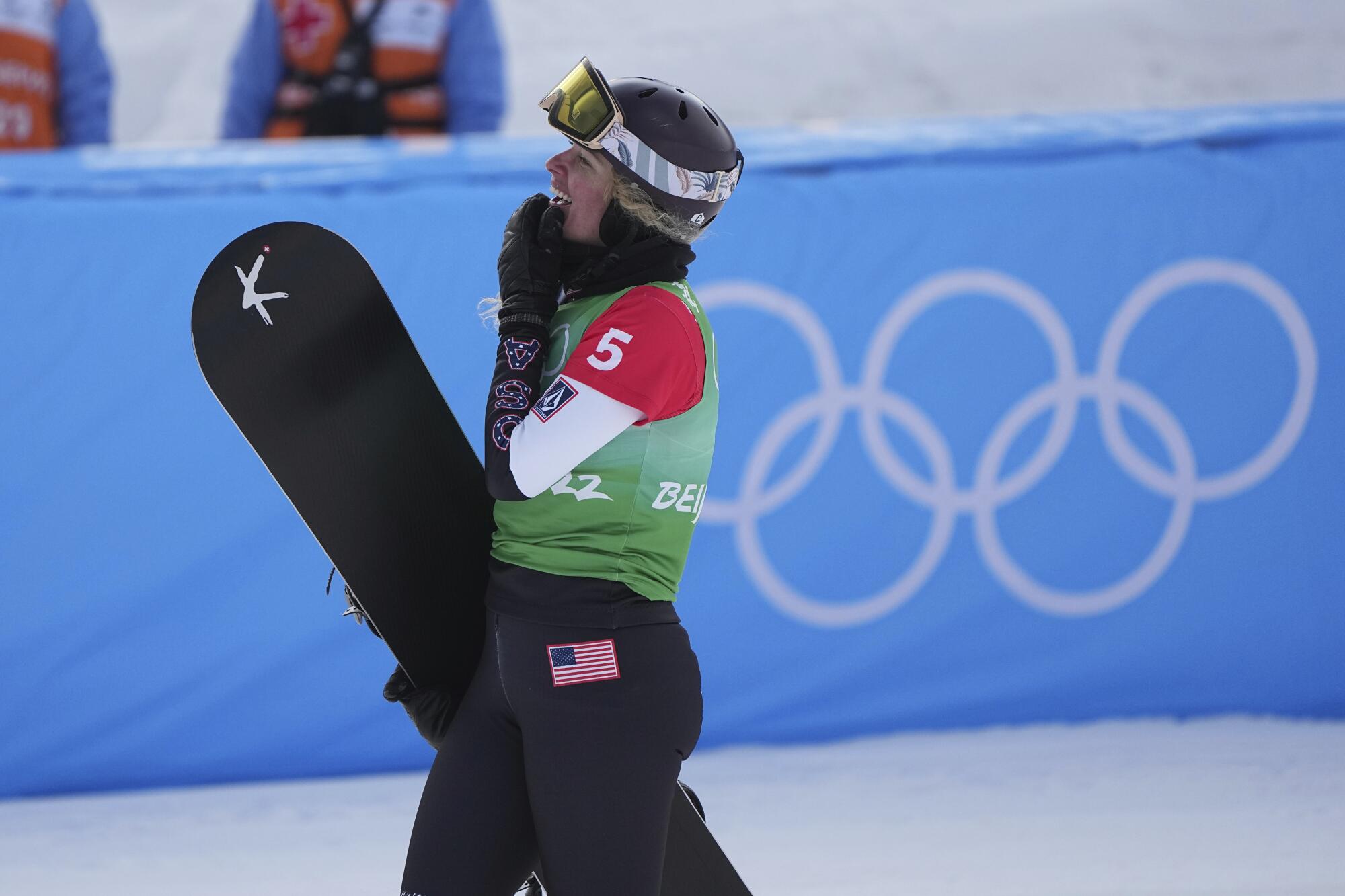
“Some days, I really don’t like it,” Jacobellis said of the pressure. “Some days it’s very stressful and aggravating, and anxiety is through the roof. But when we’re all together and for days like this, it makes it worth it.”
During the Tokyo Olympics over the summer, Simone Biles pushed the conversation about pressure at the Games into the mainstream when she withdrew from several events because of a phenomenon called the “twisties,” where gymnasts lose their spatial awareness.
“I think it’s OK to call some of your own shots,” Beilock said. “I think Simone was lauded for her ability to step up and say, ‘No, I can’t do this right now.’”
The author added: “It’s paralleling conversations we’re having in society.”
After Shiffrin couldn’t complete the slalom Wednesday — a race she has won a record 47 times on the World Cup circuit — Biles tweeted three hearts in support.
It would be ridiculous to think an athlete like Shiffrin, already one of the best to ever click into a pair of skis, needed another Olympic medal to attract sponsors or build her reputation in the sport.
“You can’t gauge your entire career on a tenth of a second,” her brother Taylor Shiffrin said. “Gauge it on the many thousands of hours of work and effort you’ve put in.”
But entering the Games as a contender to win medals in five individual events, her inability to stay on course for more than a combined 16 seconds — she fell in the giant slalom to start the Games — was nonetheless baffling.
Some of the strongest words and biggest questions came from Shiffrin herself.
“Failure is a scary word, and disappointment, all the negative words, because we’re supposed to be kind to ourselves,” she said. “But I do consider it failure. I think a lot of people do. It’s just tough to see that word in the headline of an article and it feels like clickbait to say ‘crashes out,’ ‘fails,’ ‘disappoints the world,’ ‘chokes.’ They’re just harsh words, but I’ve finally come to terms with that being a little bit part of what we’re doing here.”
I think it’s possible to feel both proud of a career and sad for the moment you’re in.
— U.S. skier Mikaela Shiffrin
Some may have overlooked that she missed crucial training time with a back injury and a positive coronavirus test late last year. Or that she still struggles with the emotional fallout from the unexpected death of her father, Jeff Shiffrin, two years ago.
Shiffrin’s boyfriend, star Norwegian skier Aleksander Aamodt Kilde, posted a photo of her alone on the side of the slalom course and pleaded for understanding.
“Most of you probably look at it saying: ‘she has lost it,’ ‘she can’t handle the pressure’ or ‘what happened?’ ” Kilde wrote. “… Which makes me frustrated, because all I see is a top athlete doing what a top athlete does! It’s a part of the game and it happens. The pressure we all put on individuals in the sports are enormous, so let’s give the same amount of support back.”
On Friday, Shiffrin returned to the slopes for the super-G and finished ninth. Afterward, she said that resetting after the first two races wasn’t easy and she felt “emotionally weary.”
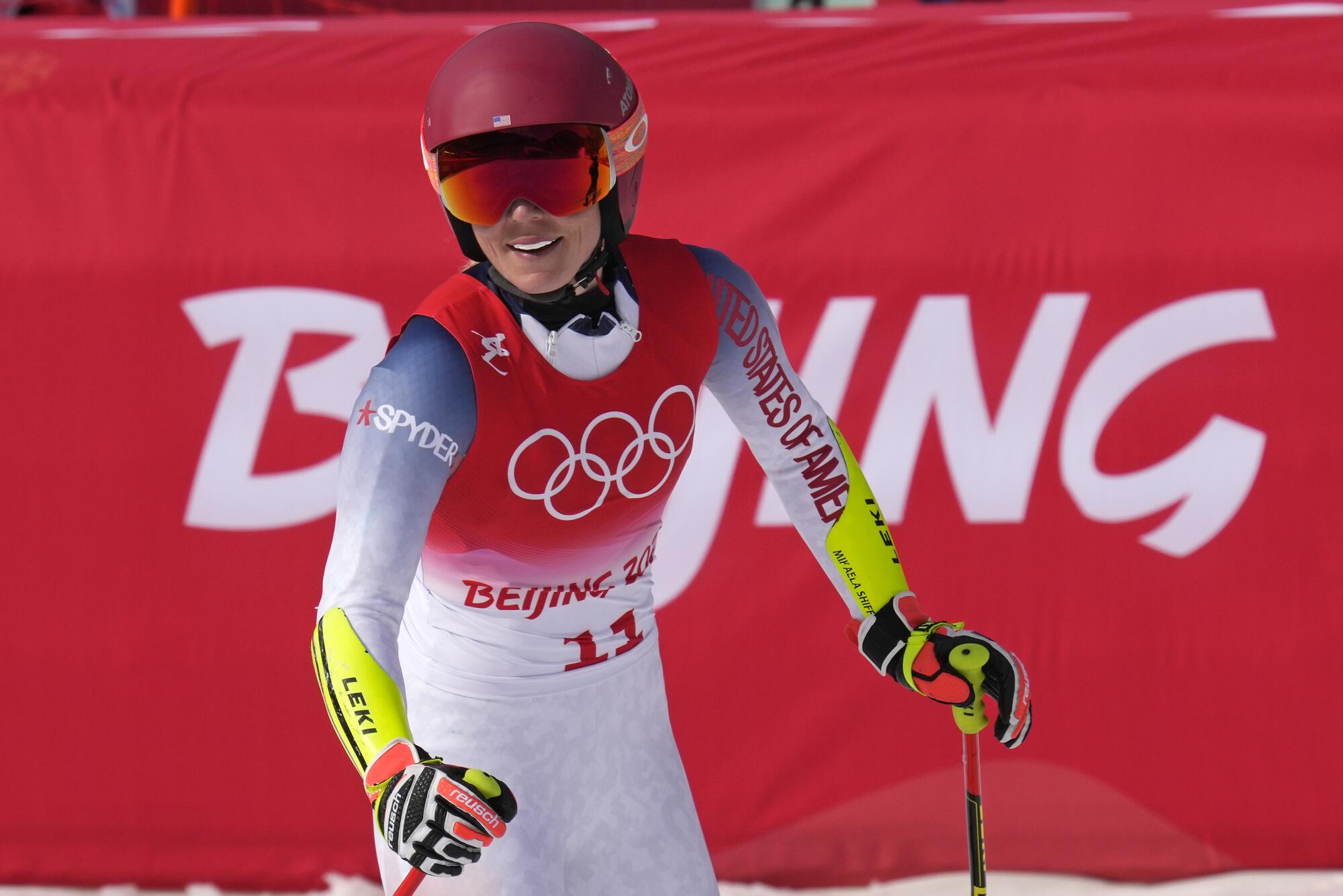
“A lot of athletes have said before that pressure is a privilege and it truly is, to be in the position that I come to the Olympics and I’m a contender and actually expected to medal in multiple events,” Shiffrin said Friday. “But it’s an enormous letdown when it doesn’t happen. I can go back and say I’ve won medals before in my career and that’s wonderful, but it doesn’t take away any hurt or disappointment from these races. I think it’s possible to feel both proud of a career and sad for the moment you’re in.”
Pressure still permeated her words. But she had finished a race and felt relieved. And for a day, that was enough.
More to Read
Go beyond the scoreboard
Get the latest on L.A.'s teams in the daily Sports Report newsletter.
You may occasionally receive promotional content from the Los Angeles Times.
